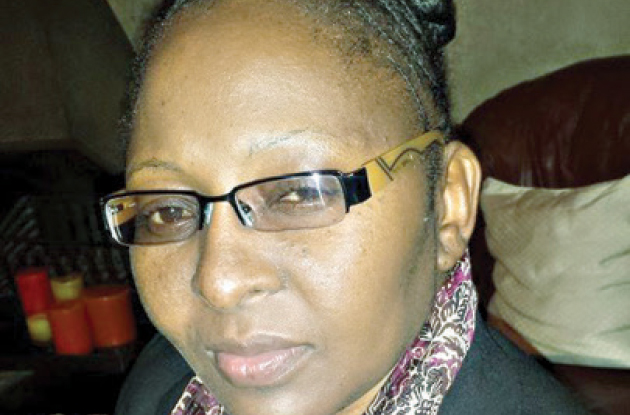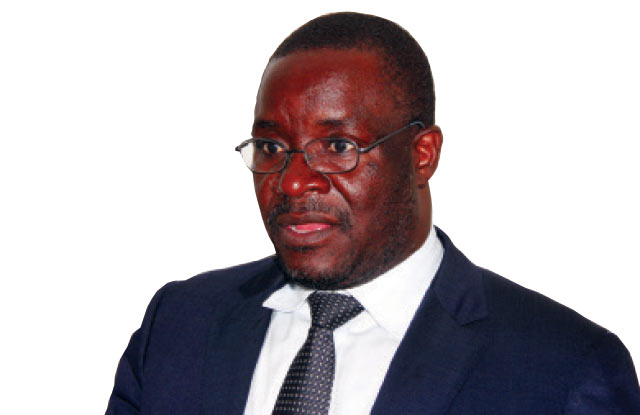Sidojiwe residents: A neglected community

Andile Tshuma
“As you can see for yourself, almost every girl between the ages of 13 and 18 is pregnant or has a baby. It is because these children have nothing else to do with their time. There are no family planning facilities as we have no clinic and it is problematic. They cannot go to school, there is no school, there are no jobs, so some engage in prostitution, and end up contracting all sorts of diseases while some just sleep around to kill time”
A resident at Sidojiwe Flats has just died and her relatives are unknown. The community is burdened with the need to give her a decent send off.
Her body has been taken to a mortuary at a Government hospital and a pauper’s burial looms.
The deceased knew not comfort during her stay at Sidojiwe flats, which is located in a designated industrial area.
Ms Maidedi Tavaziwa, one of the residents at the council owned flats, can testify to that.
Ms Tavaziwa, a former employee of a clothing company that closed, said she used to live in a townhouse and when she lost her job she moved to the flats to lease a “corner.”
Her relatives opted to live with her children to save them from the squalid conditions at the flats.
“My daughters used to learn at Coghlan Primary School. I was a designer and cutter at a factory in Belmont. I used to rent a townhouse, and I used to have a car, a Mazda 323. Our company closed at a time when I was in debt. I sank deeply,” she said.
“We are a neglected community here. Even if there is a sewer pipe burst or water problem here it is us who end up solving the problem on our own, which is a challenge.”
Residents there pay $12 per month to council per unit as rent and each unit’s owner has taken in some people.
One unit can be occupied by three families, with each family having an average of six people. Curtains are used to demarcate rooms.
A floor at the flat that houses about 80 people has only two common bathrooms, a laundry and a cooking area. The common toilets reek of human waste.
Mosquitoes breed in fetid pools of sewage and children make toy boats from empty milk sachets and innocently float them on the sewer water.
Gogo Grace Ndlovu, who is unsure of her age, but is a widow, said she used to own a house in Killarney suburb, but it was destroyed on grounds that it was an illegal structure.
She said she came to stay at the flats more than 14 years ago after the death of her husband.
“I lost my husband, all my children, my parents and all my siblings are late. All I am left with is my grandson, who I struggle to send to school,” said the granny.
The nearest schools are Maphisa Primary School in Sizinda suburb, Ihlathi High School in Tshabalala suburb and Barham Green Primary.
Without a school or a clinic or a church or even public transport, the community is an island in a sleeping former industrial hub.
The broken structure of what used to be a church still stands, in the midst of thick thorns and bushes, suggesting that all hope may be lost.
A 14-year-old pregnant girl, whose name has been withheld for ethical reasons, said she has had two abortions so far from an illegal abortion clinic at the flats.
“There are condoms at the caretaker’s office but we are afraid to go and ask for them because she tells us that they are for adults. Maybe if they put them in toilets, we will be able to take them without shame,” she said.
The mother of the pregnant girl said teenage pregnancy was a big problem at the flats.
“As you can see for yourself, almost every girl between the ages of 13 and 18 is pregnant or has a baby. It is because these children have nothing else to do with their time. There are no family planning facilities as we have no clinic and it is problematic. They cannot go to school, there is no school, there are no jobs, so some engage in prostitution, and end up contracting all sorts of diseases while some just sleep around to kill time,” she said.
Ward six councillor, Thabitha Ngwenya. said the only solution was to relocate residents as the flats are not suitable for human habitation.
“My main worry is with the kids growing up under those conditions. It is just something else. Schools there are very far especially for Grade zeros and one.
All I can say is the solution is to remove everyone,” said Clr Ngwenya.
Mr Aubrey Sibanda, the chairperson for the Sidojiwe Residents’ association, said they were struggling to pay the required $12 per unit to council, as they are unemployed and are facing eviction.
Mrs Nesisa Mpofu, Bulawayo City Council’s Senior Public Relations Officer said council sent letters of eviction to some residents of Sidojiwe in November 2016.
“There are huge rental arrears by some of the tenants at Sidojiwe. The rent criteria is that if the rent is not paid by the 7th of the following month and there is no explanation, that amounts to breach of the agreement,” said Mrs Mpofu.
She said council allocated residents Inkunzi Beer Garden for their use through their councillor as a source of income as a way to improve their livelihoods.
Mrs Mpofu said there are no plans to avail facilities such as clinics or schools in the area.
“In terms of town planning, the area is designated industrial and the future use require that the settlement be abolished and all residents relocated.
Following the huge displacement of people through the Murambatsvina exercise, the place was re-colonised by those affected by the scheme and had lost accommodation,” she said.
“Council re-opened the blocks on humanitarian grounds, to temporarily house part of the affected population. This of course was not an improvement or ideal solution but it kept people from the adverse elements.”
— @andile_tshuma








Comments